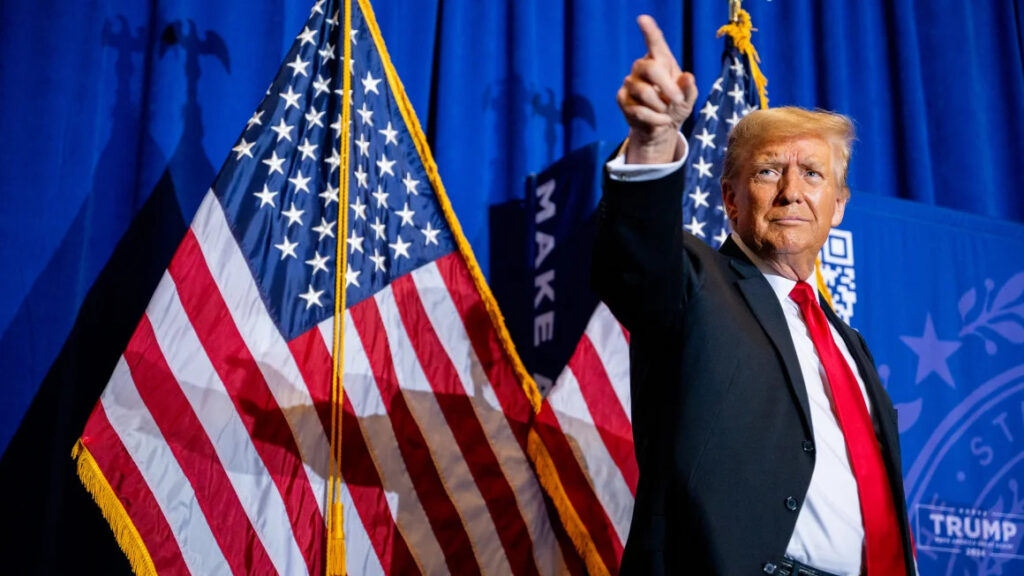
By Paige Albright
Boston University News Service
With the 2024 New Hampshire primary tomorrow on Tuesday, Jan. 23, the political landscape is evolving as candidates navigate the complexities of the upcoming election. As contenders drop out, the focus intensifies on the remaining candidates; making it crucial for voters to grasp the current political dynamics and campaign policies.
There are two remaining candidates for the Republican Party nomination ahead of the New Hampshire primary: Nikki Haley and former President Donald Trump, who is leading in the polls after the first primary was held in Iowa earlier this month. President Joe Biden is the front-runner in the race for the Democratic nomination while two other candidates remain.
Trump maintains a significant lead in the GOP nomination race, enjoying widespread support within the party. In March 2023, he made history by becoming the first former president to face criminal charges, confronting a total of 91 crimes across multiple cases, according to The Washington Post.
According to The Daily Beat, Trump says he’s the “most pro-life candidate,” underscoring this assertion with his three appointments to the Supreme Court that played a role in overturning the 50-year-old precedent established by Roe v. Wade. Trump pledges to pursue a federal ban on abortions, with provisions allowing exceptions for cases of incest and rape.
Trump articulates a comprehensive legislative agenda. He aims to pass legislation that would result in a “record investment” in law enforcement, signaling a commitment to bolstering support for police initiatives. Additionally, Trump hopes to pass legislation banning federal agencies “that promote the concept of sex and gender transition at any age,” as well as to punish doctors who provide gender-affirming care to minors.
Nikki Haley, former Cabinet member to Donald Trump and United Nations Ambassador, currently serving as the Governor of South Carolina, frames her campaign as a “generation of change.” During her tenure as governor, she enacted a ban on abortions at 20 weeks into term with no exceptions for rape or incest, according to NBC News. While on the campaign trail, she expresses an aspiration to foster a “national consensus” on the issue of abortion.
Haley emphasizes her relatively young age compared to figures like Trump and Biden, advocating for term limits for Congress and calling for a “mandatory mental competency test for politicians over 75 years of age.”
Additionally, Haley addresses immigration concerns by focusing on a new policy for asylum seekers and sanctuary cities to mitigate the influx of immigrants entering the country illegally.
In the Iowa Caucus, Haley secured third position, trailing behind Trump and Florida Governor Ron DeSantis, who withdrew from the race on Jan. 21.
Biden outlines key policy points concentrating on protecting Social Security and Medicare. Additionally, he underscores his commitment to safeguarding abortion rights and fair election practices.
Biden expresses his dedication to supporting Ukraine in countering Russian aggression.
In addressing economic policies, he advocates for an increase in taxes for the “wealthiest and biggest corporations.” Notably, he assures that families earning under $400,000 will not experience a tax hike, emphasizing the closure of billionaire tax loopholes to ensure everyone “pays their fair share.”
Other Democratic candidates include Marianne Williamson, who previously ran for the Democratic nomination in 2020 without success, and Dean Phillips, a congressman from Minnesota. Phillips calls for the president to “pass the torch” to the new generation.
Despite concerns within his party about his age, Biden is anticipated to secure the Democratic nomination with relative ease.







